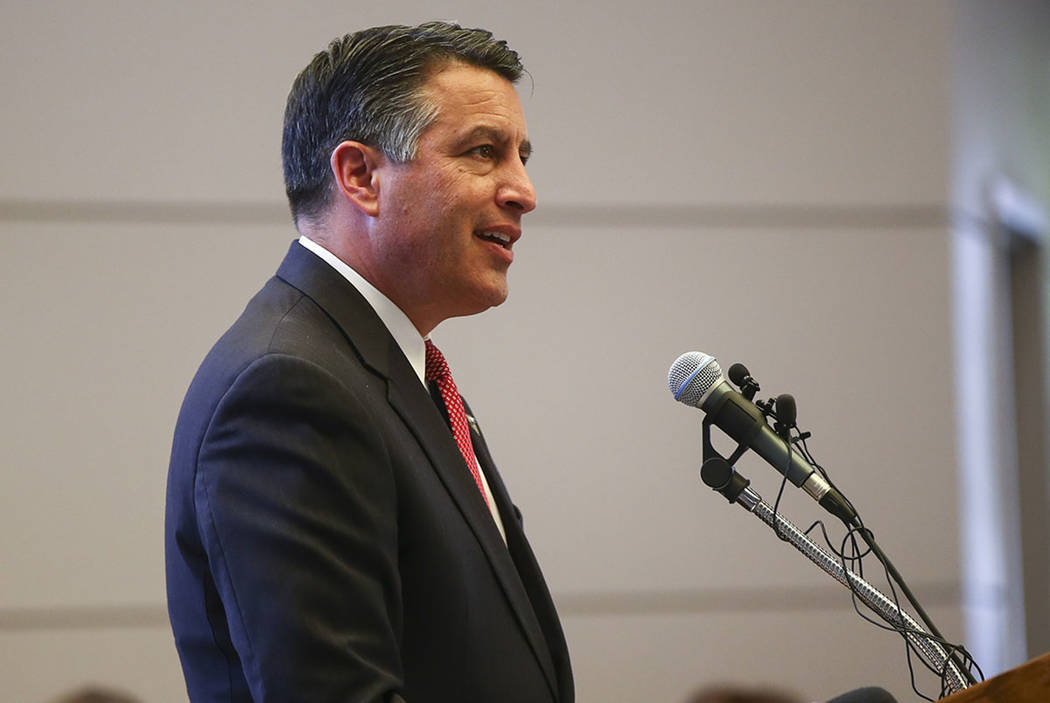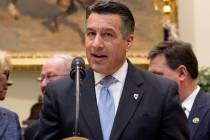Sandoval vetoes two bills, signs 19 others on Saturday

CARSON CITY — Gov. Brian Sandoval vetoed two more bills and signed 19 others on Saturday, including a bill requiring more reporting of suspected child abuse and neglect.
Senate Bill 287, sponsored by Sen. Heidi Gansert, R-Reno, expands mandatory reporting of suspected child abuse and neglect to all school personnel and volunteers.
Sandoval said the law will reduce a the national problems of “passing the trash, where school personnel are allowed to resign instead of face charges for physical, sexual and other abuse of children.
The signing of SB287 came the same day the Nevada Senate unanimously approved a companion measure, Assembly Bill 362 sponsored by Assemblywoman Jill Tolles, R-Reno. It requires school job applicants to allow access to information about sexual misconduct allegations in their past, and requires school districts to contact former employers for the information.
The legislation comes amid heightened scrutiny of the Clark County School District, which has seen 11 employees arrested since July on charges tied to alleged sexual misconduct with students.
A Las Vegas Review-Journal investigation revealed that background checks conducted by the state Department of Education and the school district are mostly repetitive, using three databases that show the same background information.
Sandoval also signed Senate Bill 274, expanding opportunities for children in foster care to connect with siblings; and Senate Bill 171, requiring pharmacies to post information on how patients can dispose of controlled substances.
Assembly Bill 384 is a so-called “ban-the-box” legislation that prohibits state and local government employers from asking job applicants about criminal pasts until an initial job offer is made. Sponsored by Assemblyman Tyrone Thompson, D-North Las Vegas, the goal is to give people with a record a chance to meet face-to-face with potential employers and discuss the circumstances of their past and qualifications.
Senate Bill 253 establishes the Nevada Pregnant Workers’ Fairness Act, requiring employers provide reasonable accommodations for employees or job applicants who are pregnant, have children or related medical conditions.
Senate Bill 233 requires the state Medicaid and other insurance plans to provide reproductive health benefits and allow women to obtain a 12-month supply of contraceptives.
The governor Saturday vetoed Senate Bill 384, which sought to restrict public access to information on retired public employees. Sandoval in his veto message said the bill would limit “the public’s right to access public information, upsetting the established balance between privacy and transparency.”
Sandoval also vetoed Senate Bill 397, which sought to expand the authority of the Nevada Equal Rights Commission.
Those two vetoes followed the governor’s veto late Friday of Senate Bill 265, that would have required drug manufacturers to notify the state in advance of planned price increases for diabetes-related drugs, among other provisions.
Contact Sandra Chereb at schereb@reviewjournal.com or 775-461-3821. Follow @SandraChereb on Twitter.












